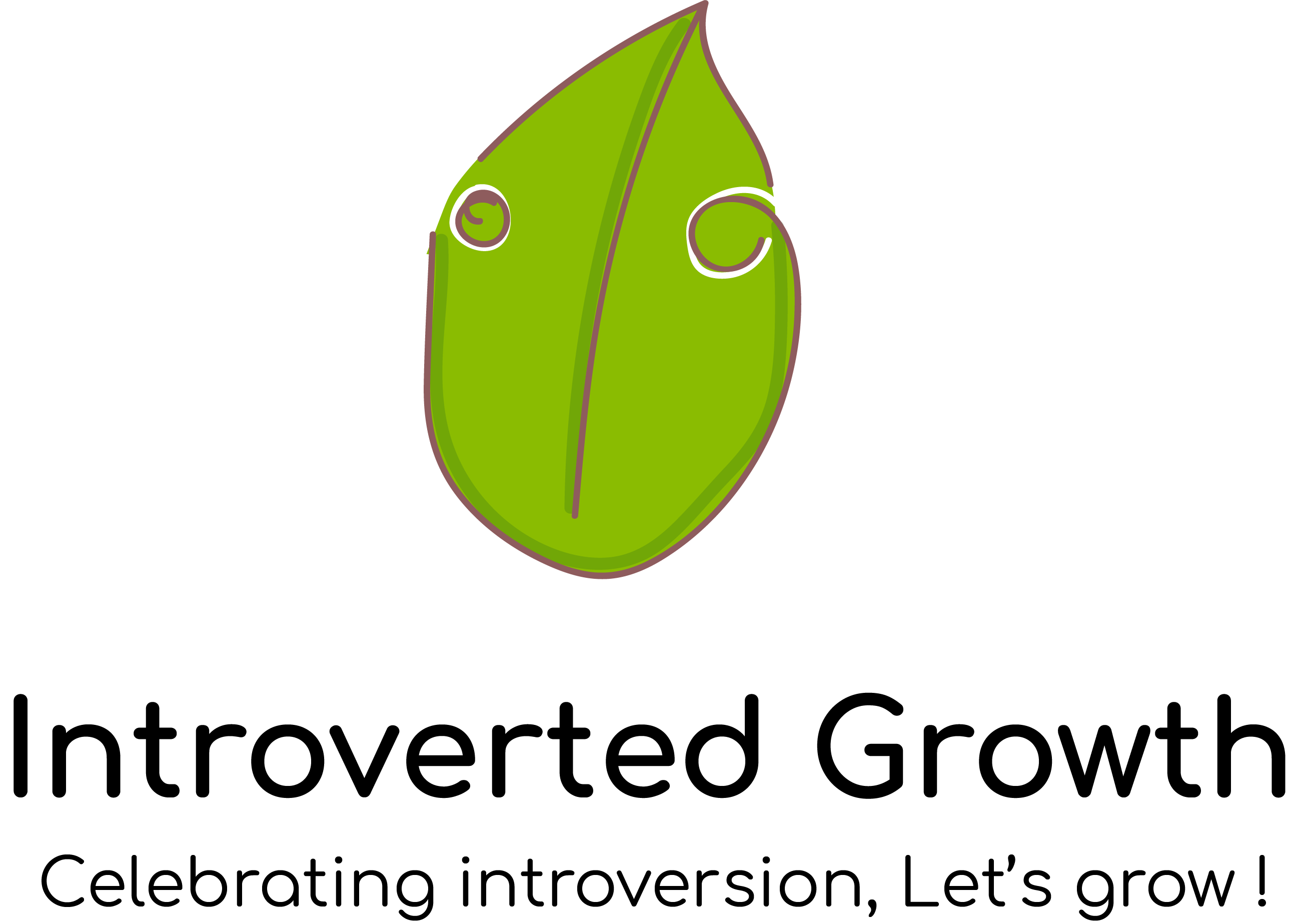If you’re looking for an INTP vs INFJ test to better identify your personality type, then you’re off to a good start here.
In this article, we will take a closer look at the similarities and differences between INTPs and INFJs, based on their cognitive functions to help you learn how to spot the difference between them to better identify your MBTI type.
Let’s start by taking a look at their cognitive function stack
INTP vs INFJ Cognitive Functions
The INTP Function Stack
- Dominant introverted thinking (Ti)
- Auxiliary extraverted intuition (Ne)
- Tertiary introverted sensing (Si)
- Inferior extraverted feeling (Fe)
The INFJ Function Stack
- Dominant introverted intuition (Ni)
- Auxiliary extraverted feeling (Fe)
- Tertiary introverted thinking (Ti)
- Inferior extraverted sensing (Se)
These cognitive functions can be further explained as follows:
- Dominant function: The most dominant of one’s mental processes; this is what people tend to use on a daily basis, such as when making decisions or solving problems.
- Auxiliary function: Under certain circumstances, the auxiliary can help support the dominant function by leading you to consider all possibilities. It usually helps explain your reasoning behind making decisions if there are multiple solutions found to be reasonable. This is known as “Harmony of the Four Functions”.
- Tertiary function: The Tertiary function is thought to be the least consciously developed than the other three. It would typically develop during adolescence and can help support your dominant and auxiliary functions, giving you access to a broader range of information and experiences so as to not feel limited by them
- Inferior function: This mental process tends to only come into play when we are under stress, and it typically involves a negative or immature version of the Dominant and Auxiliary functions. This is known as “The Opposing Personality”, and it often shows up when we feel inadequate in certain situations, causing us to lash out emotionally against others.
Major Similarities To the INTP Vs INFJ
Based on their function stacks, you can see that both of them have dominant introverted functions( Ti and Ni) and they both use the same judging functions (Ti and Fe) but the order of their cognitive preference for these functions is quite different, still, despite the difference, both of them will:
-Be introspective due to their introversion.
-Enjoy intellectual pursuits.
-Have a need for independence.
-Prefer to spend time alone or with a few close friends.
-Be curious and analytical.
-Be creative.
-Have strong intuition.
-Feel a deep sense of responsibility for their loved ones.
Now despite these similarities, INTPs and INFJs have some notable differences.
11 Examples to Understand the INTP vs INFJ Comparision
1. How They Observe The World:
- INTPs prefer to use an analytical approach when observing the world, focusing on objectivity and accuracy. They are good at organizing and structuring complex problems. Their strength lies in their ability to focus, taking the time to break down different theories, ideas, and concepts using their Ti.
- INFJs, on the other hand, use both their dominant Ni and auxiliary Ti to observe the world. They are able to synthesize information in an analytical approach, but also have a strong sense of intuition, which allows them to understand and empathize with the emotions of others, so they rely more on their intuition when they observe the world around them.
2. How They Approach Problems:
- INTPs like to use a step-by-step approach when solving problems, using principles as the foundation for finding solutions. They start by looking at a problem through a purely objective lens before they form a hypothesis. They use their brain’s internal structure to understand the different components of a system, holding onto what they know to be true while searching for solutions.
- INFJs, on the other hand, usually start by understanding the emotions of those involved in a problem. They then look at all the possible solutions, using their intuition and analytical thinking to come up with the best solution. They are able to see all the possible consequences of their actions and can often see the potential for growth in difficult situations.
3. How They Make Decisions:
- INTPs prefer the use of logic when making decisions, going with the option that leads to the best outcome according to a set of pre-determined rules. They tend to make decisions based on their own beliefs and theories, acting according to what makes sense instead of something they feel passionate about.
- INFJs, on the other hand, use a combination of intuition and logic when making decisions. They often go with the option that feels most right to them, using their intuition to understand the emotions of others and the possible consequences of their decisions. they act according to their values and what they believe is right, even if it means going against the grain.
4. How They Deal with Feelings
- INTPs don’t typically experience emotional reactions that are as strong or intense. When they feel upset, they tend to have strong reactions in which they can still think logically. They will want time alone in order to process how they feel with their Ti function.
- INFJs feel emotions intensely and are more in touch with their feelings. They tend to wear their hearts on their sleeves and often take on the emotions of those around them. When they experience strong emotions, they will want to acknowledge them and process them. They’re empathetic due to their Fe, this makes them more receptive to people’s emotional states.
5. How They Handle Change:
- INTPs typically handle change by using their Ti to understand the changes that are happening and how they can best adapt to them. They like predictability and are not good with unfamiliar experiences, so changes in their environment can cause them to feel anxious or stressed.
- For INFJs, change can be a struggle, on one side they’re open to new possibilities the future brings but they’re also sentimental about these possibilities. They often fear change that may make them feel like they’re losing control or that they can’t predict what will happen. They’ll often try to control the situation as much as possible and may feel overwhelmed by change.
6. How They React Under Extreme Conditions
Both types will react in ways that are unusual to their natural preferences
- INTPs are likely to have an emotional breakdown when stressed, withdrawing into themselves even if asked questions or spoken to. They may get distracted easily by small things that come up in order for them to avoid whatever that’s making them feel overwhelmed. A lot of them will be stuck in the Ti-Si loop of analyzing past events over and over without any possible conclusions.
- When INFJs face extreme conditions they turn to themselves even more than what’s natural for their introverted personality, causing them to fall into the Ni-Ti loop where they become detached from others and more hostile and unfeeling, they’ll be stuck reacting emotionally to all the negative possibility their Ni suggests without any objective reasoning, all that Ti does is come up with subjective reasoning to back up what Ni suggests. when they’re in their depressive loop, anything Ni suggests is real.
7. How They Deal with Conflict
- INFJs are more likely to avoid conflict if they can help it and will try to maintain peace and harmony in their relationships. They may bottle up their feelings until they reach a breaking point, at which point they’ll lash out. INFJs are more likely to use their Fe to deal with conflict.
- INTPs will typically try to avoid conflict as well, but if they can’t they’ll use their Ti to analyze the situation and come up with a logical solution. They’re less likely to use their Fe, instead relying on their strong sense of logic.
8. How They Relate to Others
- INFJs are often able to read people quite well and can understand their feelings and emotional states. They’re able to do this due to their Fe-Ni function stack. INFJs often have a strong sense of intuition, which they use to understand people.
- INTPs don’t typically care as much about reading people and often have a difficult time understanding them. They’re more in tune with their own thoughts and don’t typically spend much time thinking about how others are feeling. This is due to their Ti function.
9. Their Connection With Friends and Family
- INFJs typically have a few very close friends that they’re extremely loyal to and are very supportive of. They often have a deep connection with these people and can share their feelings and thoughts with them easily. These friends are often very important to the INFJ and they’ll do whatever they can to support them.
- INTPs typically have acquaintances, people they’re friendly with but don’t have a deep connection with. They have difficulty connecting with people, but once they do with a few of them they’ll be very loyal and supportive. They don’t typically share their feelings and thoughts because they’re not in tune with them like INFJs are, but they get there with the ones.
10. How They Approach the World
- INFJs often approach the world with a sense of idealism, believing that things can be perfect and that people have the potential to be good. They often want to help others and make the world a better place. They’re often drawn to helping professions, such as counseling or teaching.
- INTPs typically approach the world with a sense of realism. They understand that things aren’t perfect and that people can be bad. They’re not typically drawn to helping professions but are more interested in working on things that have tangible results.
11. How they perform in the Workplace
- INFJs often do well in jobs that require them to be creative and come up with new ideas. They often have a strong sense of intuition, which they can use to come up with new ideas. They’re also good at working with people -provided they get a good amount of alone time to recharge- which can make them good at jobs such as counseling or teaching.
- INTPs typically do well in jobs that require them to be analytical and come up with new solutions. They’re good at working with things that are tangible and can be good at jobs such as engineering or mathematics. They’re not typically good at working with people, which can make jobs such as counseling or teaching difficult for them.
12. The Big Picture
- INFJs organize their life around their end goal, they like structure and routine but they also like to know how their actions affect people on a larger scale. INFJs want to find meaning in their lives and feel a sense of connection to something larger than themselves.
- INTPs organize their life around what makes the most logical sense to them. They’re more laid back than INFJs and are less likely to have a grand structured plan for their goals in life. They’re more interested in understanding how things work and don’t typically think about how their actions affect people on a larger scale.
FAQs
Can an INTP be mistaken as an INFJ?
Yes, they can. INTPs and INFJs share two of the same functions (Ti and Fe), and even though they’re in the same cognitive preference order, INTPs can exhibit traits that INFJs are known for, such as being more in tune with their feelings and taking care of people.
INTP/INFJ Chemistry: Why are INFJ and INTP the golden pair?
The reason INFJs and INTPs are called the golden pair is that they complement each other when they’re in their mature mindset. INFJs find INTPs attractive for their unique intelligence and objective view of the world while INFJs help INTPs understand people better and their feelings better.
Can an INFJ become INTP?
No, they can’t. Although they have similar preferences, their cognitive functions are different. An INFJ can act like an INTP but that doesn’t mean they are one.
Why do INTPs like INFJs?
INTPs are often drawn to INFJs because of their gentle and empathetic nature. INFJs are also a good balance for INTPs, as they help them understand their emotions and why people do the things they do.
CONCLUSION
I hope you found this article helpful, if you did make sure to share it with your friends and leave your feedback in the comments below.
Be sure to check out my other articles about INTP and INFJ Personality types!






